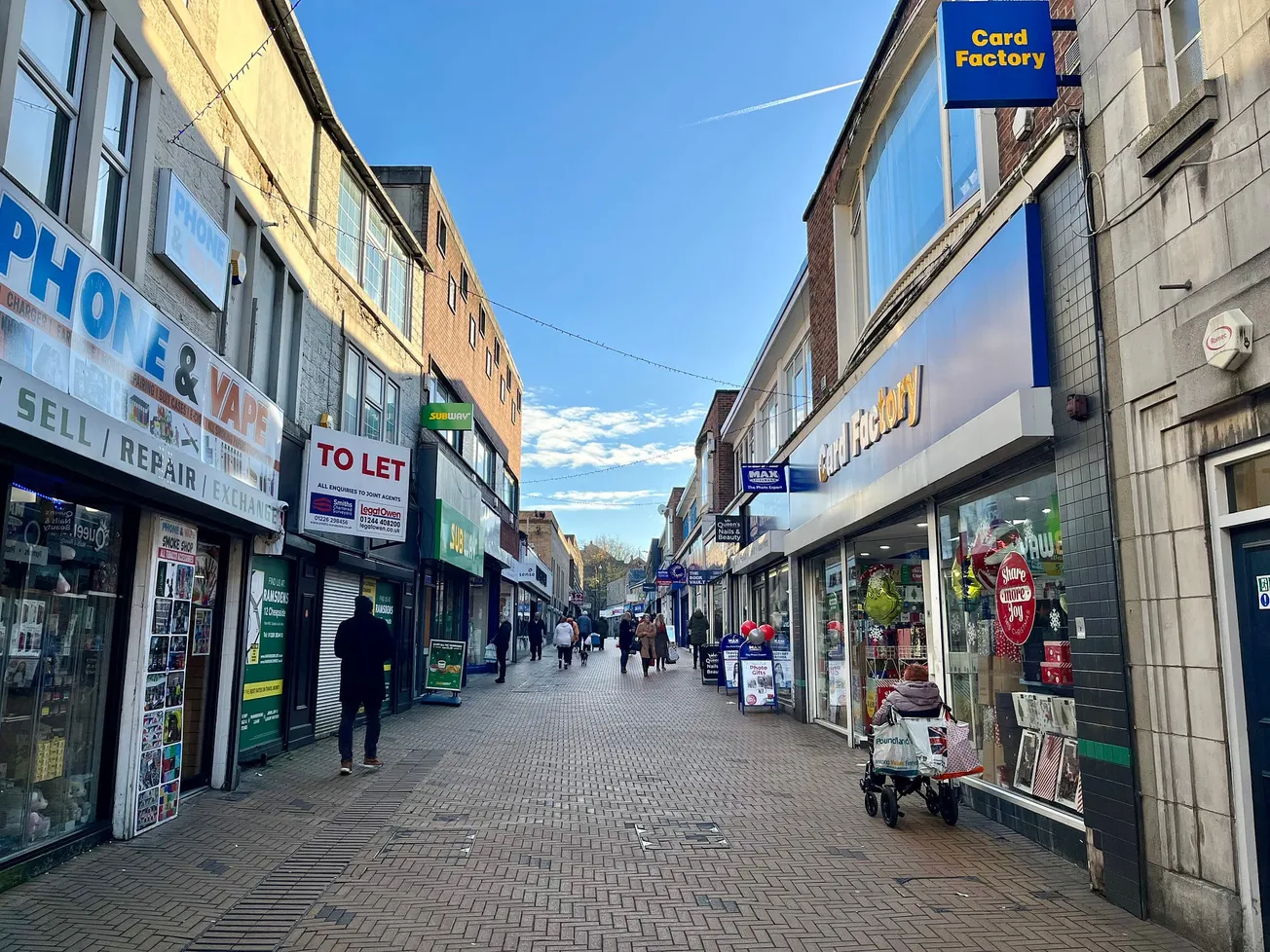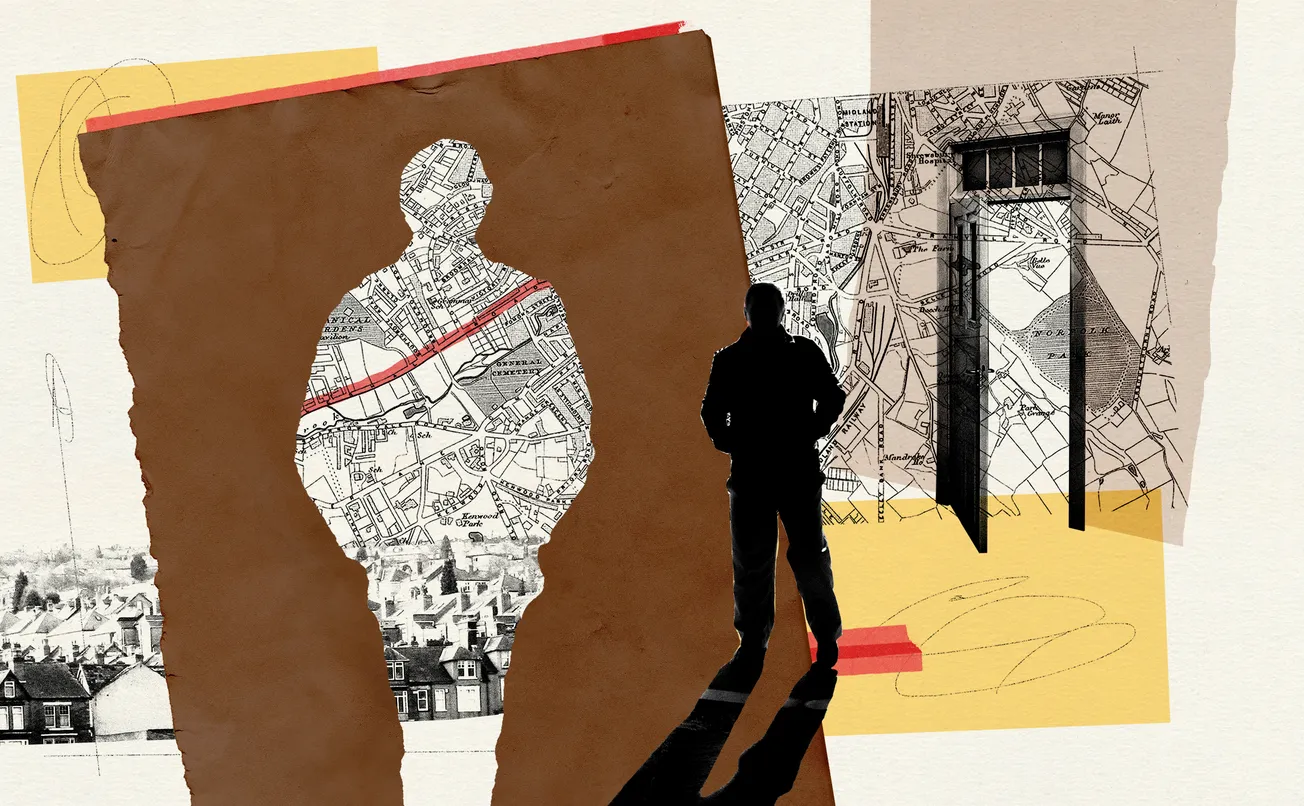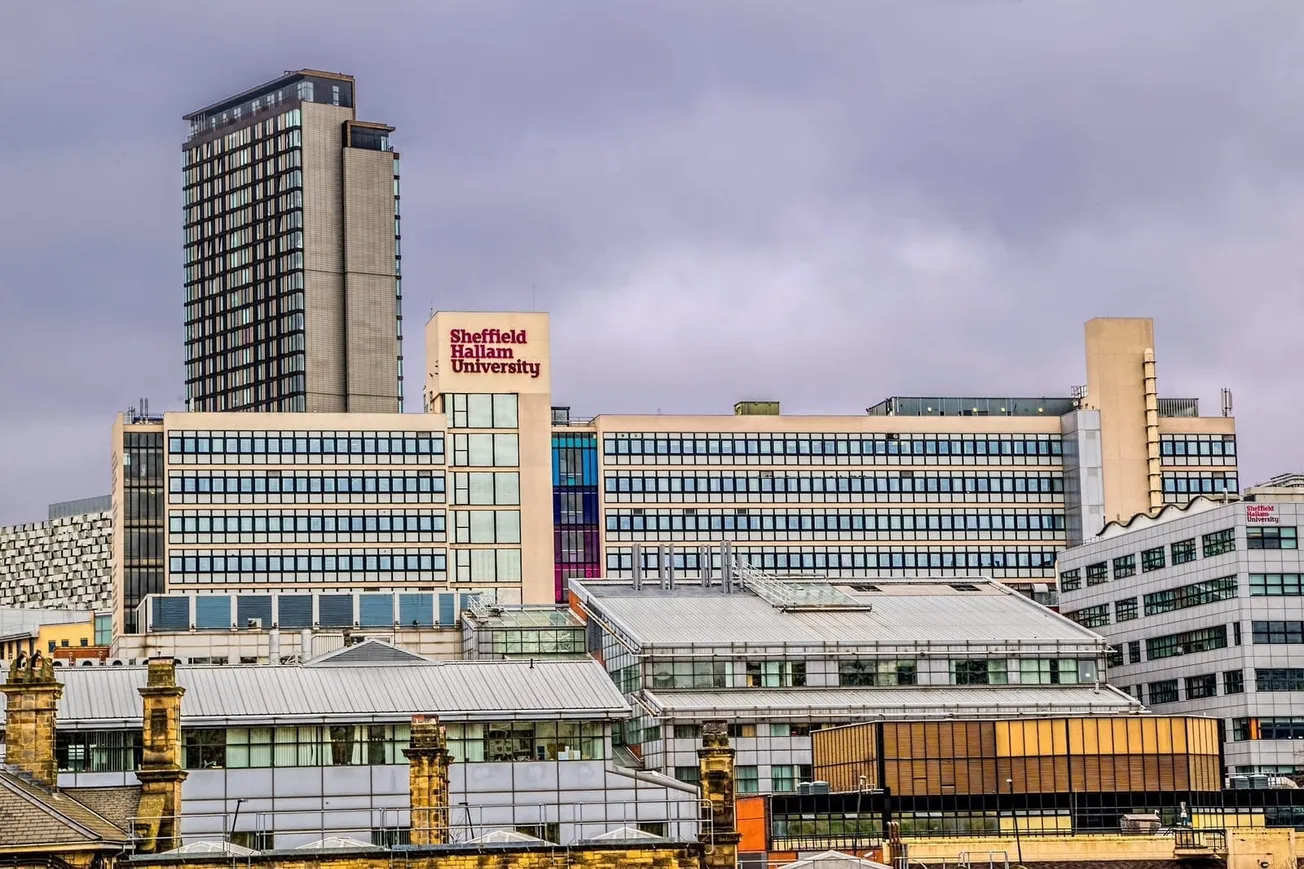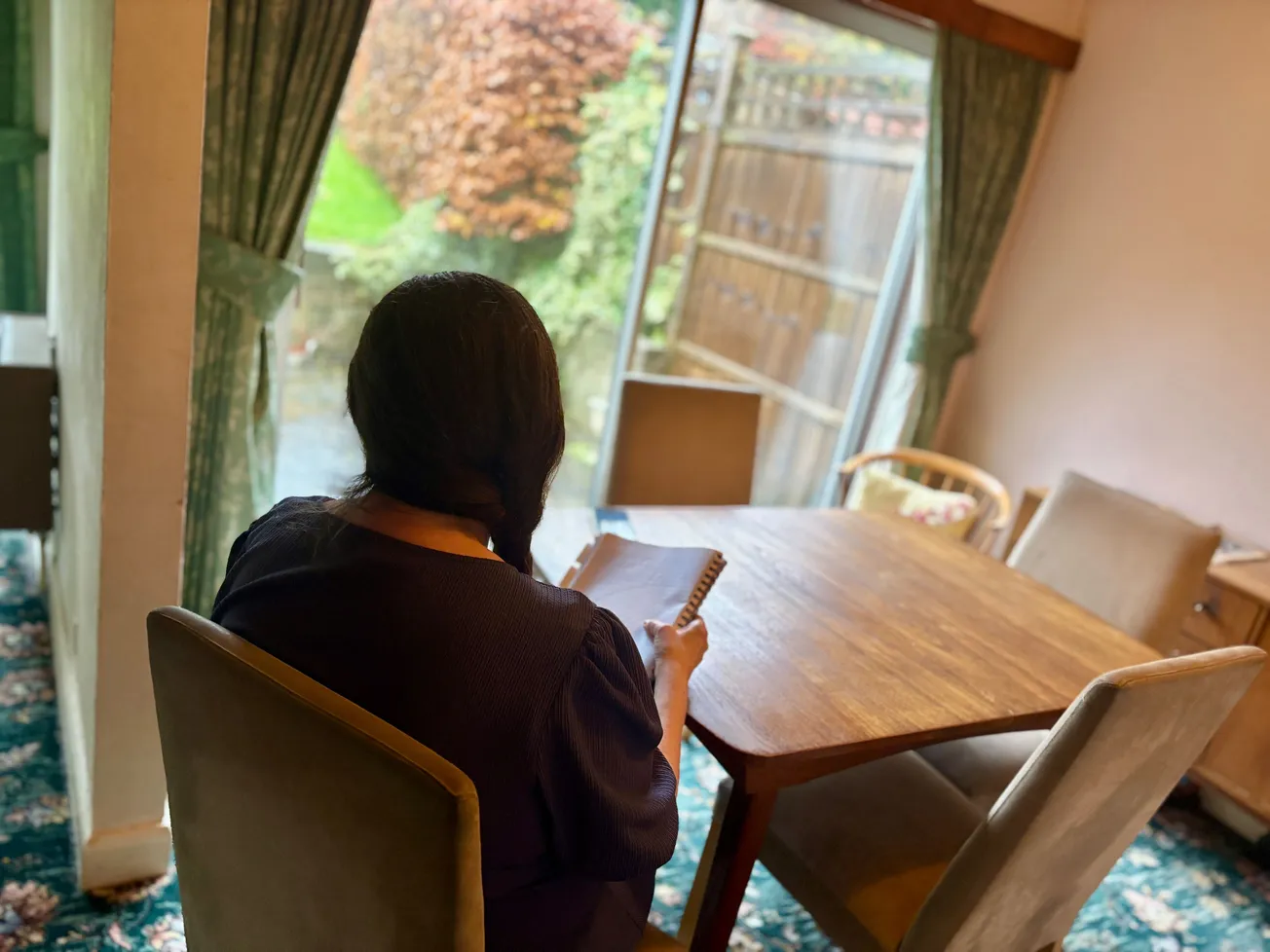Please release me, let me go,
For I don't love you anymore
A Chinese busker dressed in a Santa hat and oversized puffer jacket belts out Engelbert Humperdinck’s 1966 hit to no one in particular outside Barnsley’s main shopping centre: the optimistically-named Alhambra. He has some competition. Two oldish men going by the name of 2 ‘Ats on account of their old-fashioned wide-brimmed headwear are performing similar fayre a few hundred yards away. But rather than the “British Elvis”, they’ve gone for the real thing.
That’s the wonder,
The wonder of you
Nearby, a small stall decorated with Union Jacks plays a series of cheerful tunes. It’s market day in Barnsley and the town centre’s streets are filled with stalls selling everything from Christmas decorations to rugs. Given the time of year you might expect a festive atmosphere, but the mood seems more like one of grim determination. The cold certainly isn’t helping. It’s only a degree or so above zero meaning you can’t tell if people’s scowls mean they are unhappy or they’re actually just clenching their teeth.

Earlier, I’d parked up on Pitt Street, making my way into the town centre past lots of closed shops (Pendlebury Childrenswear, the Oo La La Boutique). One place that is still open is The Sugar Club, although its broken front window indicates its seen better days. “Dress to impress,” a sign outside the club reads. “No hats or joggers.” The Sugar Club is more of a nightspot, but down the street the pubs all seem full. The raucous atmosphere inside the Corner Pin seems to indicate happy hour has begun. On my way past I hear a woman absolutely murdering Human by The Killers.
And I'm on my knees
Looking for the answer
My interest in the well-being of the people of Barnsley isn’t purely altruistic. Anxiety Nation?, a recent report by the Joseph Rowntree Foundation, found that the town was one of the places that prescribed the most antidepressants in the whole of England. Along with every local authority in the North East, and Blackpool and St Helens in the North West, Barnsley was the only area in Yorkshire to feature in the top ten. The report says that all of them have been characterised in our post-Brexit discourse as “left behind”. Barnsley’s plight in particular was linked to its “post-mining woes”.
The report’s hypothesis is fairly simple. It says that the “shaky foundations of material life for many Britons”, including increasing numbers of households with no savings at all and a huge shift away from home ownership to private renting, is leaving people far more vulnerable to a wide range of mental health problems. The report finds that on 12 different markers, people who rent often report distress and anxiety far more often than homeowners. And the response to these problems seems increasingly to be medication. It says that 17% of English adults have recently received antidepressants, a proportion that has grown much faster than in Germany, Italy and most other comparable countries.

First things first: a confession. I don’t want this piece to appear that I’m visiting a town I know little about to wonder why all these people need to pop pills to make themselves feel better. I take medication for anxiety and depression and have done so for the last nine years. I think I’ll probably take them for the rest of my life. My decision to take them wasn’t really about economic insecurity, although I’m sure my occasional money struggles in the past didn’t exactly help the situation. Mine was about trying to deal with problems with anxiety that had troubled me most of my adult life. Since I started taking them I’ve felt more able to concentrate and plan ahead and less susceptible to mood swings. My life has improved.
All of which is to say that I don’t think there is anything wrong with taking medication to help you get through either long or short term mental health problems, or even just cope with the regular difficulties of life. The argument in the Joseph Rowntree Foundation report is that the economic insecurity people experience is making these problems worse: creating a vicious cycle in which mental distress leads to problems at work, which can in turn create issues with debt, housing and even relationships. These problems can then lead to still more worry. And if economic insecurity is the source of some of these issues, it stands to reason that if these sources of anxiety were reduced, people might feel less need to seek medical help.
I’ve read the report, but I wouldn’t mind a second opinion, so I get in touch with Dr Jessica Allen, the deputy director of the Institute of Health Equity at University College London, to ask her about the connection between economic deprivation and mental health. She says that while some serious mental health conditions like schizophrenia are more physiological, we know that conditions like stress, anxiety and depression are very often linked to people’s socio-economic situation. This can be seen in both direct and indirect ways, she tells me. “The direct impacts are if you’re poor, you can't afford enough food or can't afford to heat your house,” she says. “Which is clearly directly damaging to your health if you can’t eat or you live in cold, damp conditions.”
But there are other, less direct, ways that poverty damages your mental health as well. For example it can often lead to family conflict. The stress of all being crammed into one room because it’s the only one you can afford to heat can create a pressure cooker environment which leads to arguments and family breakdown. Social isolation can also increase because people can't go out or they're embarrassed to have people round because it's cold or damp.

There’s also the way the burden of poverty makes everything much more difficult — something anyone who has gone through a period of economic hardship can probably acknowledge. This can include having to get three buses to work or having to scrimp and save and go to the shops at just the right time to get the discounted food you need. And it can also include struggling with physical ill health, or problems with debt. “Being poor makes everything worse,” Allen tells me. “The stress of constantly having to make ends meet is just miserable.”
Despite what I’ve heard about the dominant mood in Barnsley, it’s hard to feel miserable on a day like this. After a quick walk around town, I make my way up Market Hill to the magnificent Town Hall, its white Portland stone gleaming in the bright sunshine. A huge rusted iron sculpture, Vertical, stands outside, complete with plaques showing events from the town’s history. The spot I’m standing on marks where Barnsley’s medieval market cross once stood and around which a thriving town boomed in the industrial age. One of the plaques, about the Miners’ Gala of 1969, says “streets were packed, bands marched and banners billowed”.
I take the chance to speak to two elderly ladies I spy walking past. They’ve just been watching the new Matilda film at a special senior citizens screening and are heading into town for a cup of tea. After I tell them why I’m here they’re a bit wary of speaking to me: mental ill health is still something of a taboo subject for many people. But when I explain the rationale behind the report, they instinctively agree.
Both of their fathers worked down the mines, which paid them a decent wage due to the serious dangers involved. Many others worked in one of Barnsley’s three glassworks, or at one of several Marks and Spencers’ clothes factories in the area. But over the last 40 years many of these jobs have disappeared, particularly in mining, which was decimated in the 1980s. What do people do now, I ask them. “Work in shops,” one of them says. “Or warehouses,” says the other. “A lot of people work in those huge places near the M1.”

I wonder if this could be another reason for Barnsley’s poor mental health? During my phone call with Dr Allen earlier, she had explained that the industrial jobs of the past required a great deal of skill and carried significant status as a result. However, the highly repetitive and tightly controlled work often done in logistics warehouses just isn’t the same, she told me. “We hear all these stories about these logistics warehouses where people aren’t allowed to go to the toilet or have any kind of break,” she said. “There is evidence that shows a relationship between the rise in short term contracts and a lack of unionisation in workplaces and mental illness.”
The two ladies also tell me a lot about what Barnsley was like in the past. As they do there is an unmistakable sense of pride in their voices. “Barnsley used to be famous for its markets,” one of them says. “The town centre was full of them.” Rather than a distinctive and vibrant place of the past, they say Barnsley is much the same as any other now, full of charity shops and chain stores.
Again, this echoes another scrap of my conversation with Dr Allen, in which she explained how the impact of changing work doesn’t just have an impact on individuals and families, it can also affect communities as a whole. In the past, Barnsley had an identity, a purpose. And the entire community was structured around that. As my conversation with the two women and others in Barnsley town centre and Worsbrough testifies, there is still a pride in that history, and in the community cohesion it produced. Allen told me places where people are proud of where they live and proud of their role within that society have better health outcomes than where that's not the case. The deterioration in the quality of work has produced a “general lack of hope”, she said.
This sense of hopelessness feels borne out by the next person I speak to, a teaching assistant who works in Bolton-on-Dearne, a small town a few miles east of Barnsley. When I ask her why she thinks that depression and anxiety seems to be so rife in Barnsley, she laughs. Not, I think, because mental health is funny, but because to her the answer is obvious. “It’s a deprived area,” she tells me. She says lots of the children in the school she works in don’t have very much and that school staff are increasingly bearing the brunt of that. “We have literally been out and bought children shoes,” she tells me. “It’s been getting worse and worse in the last few years, and the last few months have been really bad.”

A man eating a tray of chips slathered with vinegar outside Gary’s Fisheries tells me he’s come into Barnsley from Mexborough, a town a half an hour bus ride away that actually comes under Doncaster Council. What’s that like, I ask him. “A dump,” he says. Why? “All you can smell is cannabis and walking down the street it looks like the rubbish wagon has tipped everything out rather than picked it up,” he says. The man’s about to move away from the area, back to Blackburn in Lancashire where he’s originally from. But he will miss one thing about his South Yorkshire life, he says. What’s that? “The lovely walks.”
As the sun goes down and the temperature drops still further, I drive back towards Sheffield, stopping on the way in the small community of Worsbrough. I’ve been told the ward is one of the most deprived in Barnsley, but, perhaps due to the golden light everything is bathed in when I arrive, my first impression is pretty positive. Nevertheless, the first thing I see as I park up is the Worsbrough Community Pantry, in the basement of the local church.
The two women working inside tell me it’s not a food bank, but is about meeting a need before the crisis point is reached. As they are busy parcelling up paper bags, I take a look around. Inside the pantry itself are shelves of jars and tins arranged on different levels of cost. They tell me around 60 people pay £3 to access the pantry every week, which allows them to take a certain number of items from each shelf. How is the cost of living crisis affecting people around here, I ask them. “It’s not good,” one of them says. “Otherwise we wouldn’t have to do this would we?”
As well as the food they receive, the pantry staff, who are all members of the Worsbrough Community Church, also offer a friendly face and a chance to offload. “People come in at the end of their tether,” one of the volunteers tells me. “Because they’re in desperate need or they’ve been moved around a lot. We chat to them and make them a drink. And now they talk to each other as well, which they didn’t at the start.”

Outside, an inquisitive workman asks me what I’m doing. He moved to Barnsley from Sheffield because houses were cheaper. “It’s a beautiful area,” he says. “If it was in the South, some of the houses round here would be really expensive.” I tell him the theory that depression and anxiety are getting worse in areas like these because of the decline of traditional industries like mining, but he doesn’t seem convinced. “The pits closed decades ago,” he says. “We can’t keep on saying that forever, can we?”
Later the same day I catch up with Worsbrough councillor Jake Lodge, an independent councillor on Barnsley Council. He was born in Worsbrough, and apart from a few years he spent at the University of Lincoln, has lived there his entire life. He disagrees with the workman, and says that industrial decline has left a long shadow over places like Wosbrough. One which his hometown has never fully recovered from.
“You see it being passed down through families,” he tells me. “Parents and grandparents are always going to want the best for their kids. But the decimation of the mining industry in the 1980s, and then austerity, have created a lost generation.”
Lodge agrees with the two ladies in town that warehousing has filled the gap that the mine closures created. The people working at the nearby ones are paid about £13 an hour, which is pretty decent money, and equates to an annual salary of around £25,000 a year. But he tells me this money doesn’t go as far as it did in the past as rents are now a lot higher than they used to be. “You used to be able to get a three-bed house round here for £350-£400 a month,” he says. “Now it’s probably £750-£800, so it’s doubled.”

However, because of the impact of over a decade of austerity, with the promise of more to come over the next few years, Barnsley Council is very limited in the amount of support it can offer residents. In the past social housing would have played a bigger role, but Barnsley currently has 8,000 people on its council housing list.
Lodge tells me the people at the community pantry do a “fantastic job” of helping people and being a focal point for Worsbrough. And the local miners’ welfare club, created 60 years ago, is also still an important hub for the area. But as a result of the austerity-enforced withdrawal of the council, there are limits to what these community funded organisations can do.
Is there a solution? The Joseph Rowntree Foundation report says there are all sorts of reforms, from those relating to the rental market to workplace changes, that could bolster economic security — and bring serious benefits for mental health too. However, it currently seems that we prefer to medicate the symptoms, rather than to treat the cause.
Comments
How to comment:
If you are already a member,
click here to sign in
and leave a comment.
If you aren't a member,
sign up here
to be able to leave a comment.
To add your photo, click here to create a profile on Gravatar.







